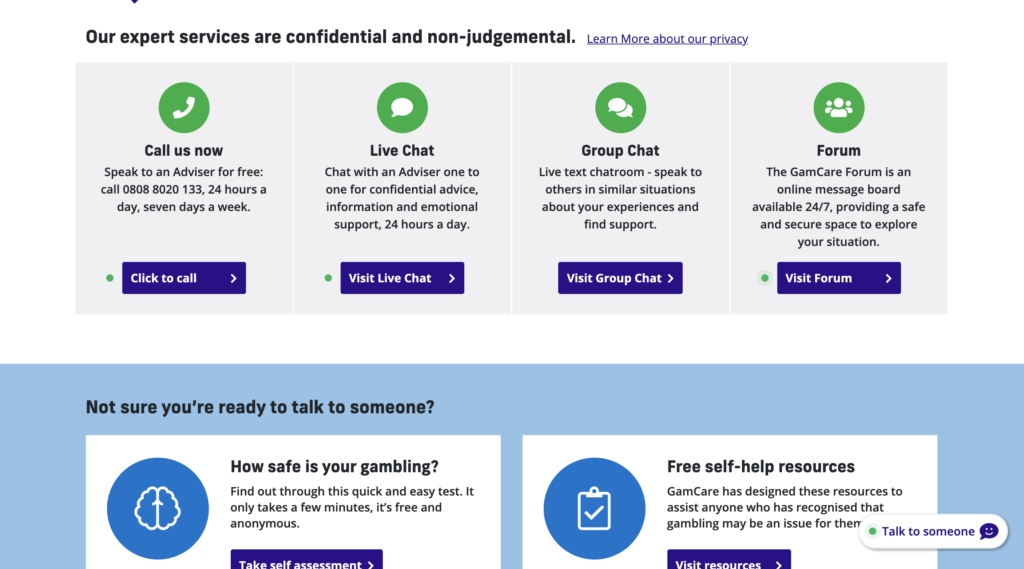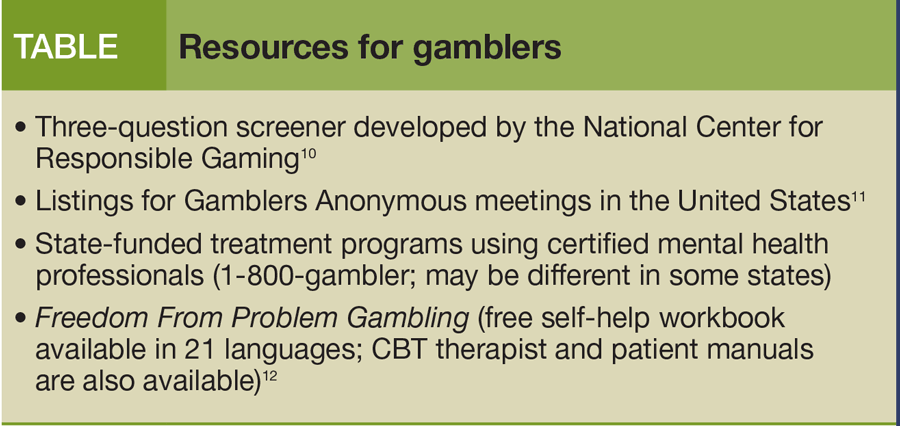
Pasche, S. C., Stein, D. J., Sinclair, H., Sinclair, H., Collins, P., Pretorius, A., & Grant, J. E. (January 01, 2013). The effectiveness of a cognitive-behavioral intervention for pathological gambling: A country-wide study. Annals of Clinical Psychiatry, 25, 4, 250-256.


Cbt For Problem Gambling Rules
OBJECTIVE: Clinicians lack adequate data on the effectiveness of treatment for pathological gambling in low- and middle-income countries. METHODS: We evaluated a manualized treatment program that included components of cognitive-behavioral therapy, motivational interviewing, and imaginal exposure in a sample of 128 participants diagnosed with pathological gambling. Our team recruited participants via the helpline of the National Responsible Gambling Program (NRGP) of South Africa between May 2011 and February 2012. Eligible participants, who met the DSM-IV-TR criteria for pathological gambling as assessed by the Structured Clinical Interview for Pathological Gambling (SCI-PG), were referred to practitioners who had been trained in the intervention technique. We then compared pre- and post-treatment scores obtained on the Yale-Brown Obsessive-Compulsive Scale Adapted for Pathological Gambling (PG-YBOCS), the primary outcome measure, and the Sheehan Disability Scale (SDS), the secondary outcome measure. RESULTS: Scores obtained on the PG-YBOCS and the SDS both decreased significantly from the first to the final session (t[127] = 23.74, P < .001, r = .9; t[127] = 19.23, P < .001, r = .86, respectively). CONCLUSIONS: The urges and disability symptoms related to pathological gambling were significantly reduced among participants completing treatment. These preliminary results hold promise for individuals with pathological gambling in South Africa and other low- and middle-income countries.For gambling, CBT can include at least four components: (a) correcting cognitive distortions about gambling; (b) developing problem solving skills; (c) teaching social skills; and (d) teaching relapse prevention. There are a number of CBT trials that suggest that it is an effective form of treatment for gambling. Learn More from The BASIS. 10 Common Cognitive Distortions. David Burns, MD, a pioneer in CBT, identifies 10 forms of twisted thinking in his 1999 bestselling book, The Feeling Good Handbook.Here, we'll define each cognitive distortion using hypothetical examples to show how this kind of thinking can lead to addiction or relapse. BCT gamblers began treatment to a higher proportion than CBT gamblers: P = 0.002. Differences in the efficacy of internet‐based behavioral couples therapy and cognitive behavioral therapy for treatment of problem gambling were not significant, but more gamblers commenced treatment in the behavioral couples therapy group.
Cbt For Problem Gambling Addiction

Cbt For Problem Gambling Winnings
Pasche, S. C., Stein, D. J., Sinclair, H., Sinclair, H., Collins, P., Pretorius, A., & Grant, J. E. (January 01, 2013). The effectiveness of a cognitive-behavioral intervention for pathological gambling: A country-wide study. Annals of Clinical Psychiatry, 25, 4, 250-256.